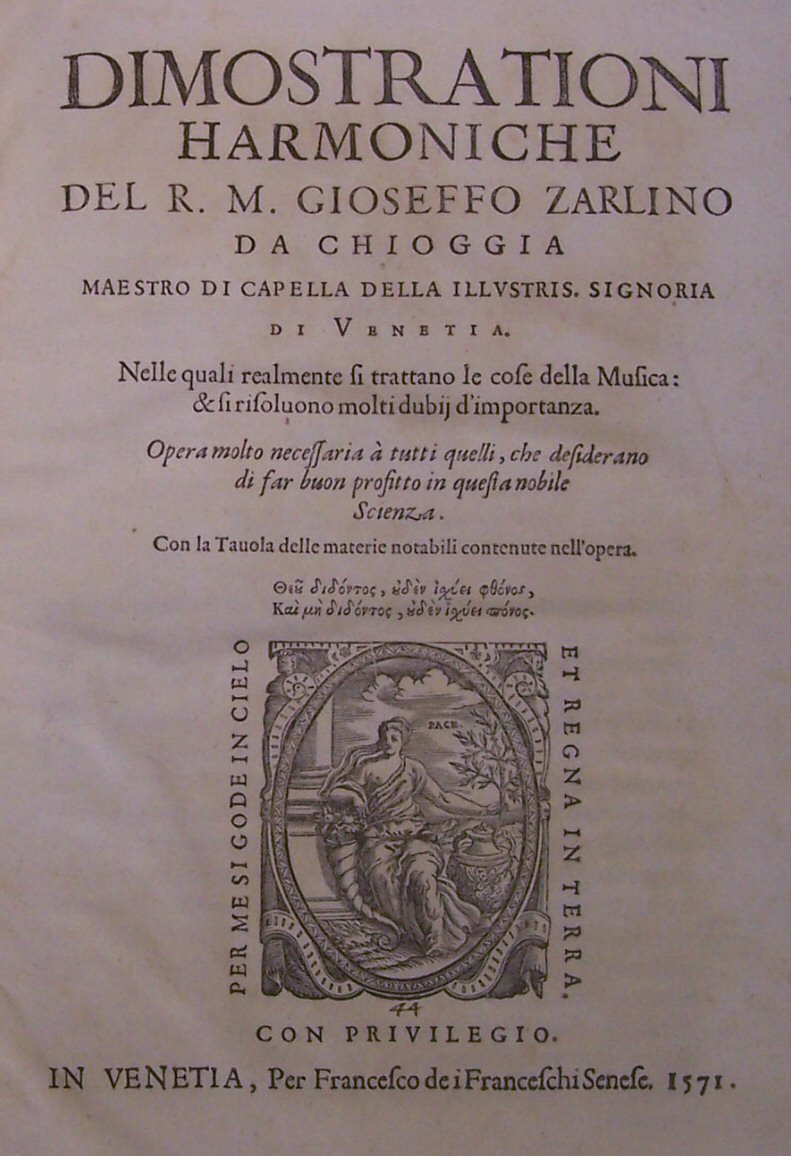Zarlino, Gioseffo
£2,400
Rare Books, Manuscripts & Photographs
Auction: Rare Books, Manuscripts & Photographs | 09 May 2007
Description
Dimostrationi harmoniche: nelle quali realmente si trattano le cose della musica ... opera. Venice: Francesco dei Franceschi, 1571. First edition, folio, mostly italic letter, some Roman, occasional Greek, printer's allegorical device of 'Peace' on title-page, woodcut initials and decorations, diagrams throughout, modern vellum, all edges blue, marbled slipcase, light discoluration, occasional browning, a few leaves oxidized, several pages misnumbered [Zarlino himself apologises for this and gives an 'errata corrige' on p. vii]
Footnote
Note: BM STC Italian Books. p. 742; Adams Z 67; Brunet V p. 1528; Graesse VI p. 508; New York Public Library, Catalogue of the Music Collection Vol. 45 p. 553. Gaetano Gaspari, Catalogo della biblioteca del liceo musicale di Bologna (Bologna 1890) Vol. I pp. 267-68. Pietro Lichtental, Dizionario e bibliografia della Musica' (Milano, 1826) Vol. 4 pp. 276-87. See also Printing and the Mind of Man 81.
First edition of Zarlino's second main treatise of music theory. The first was Le institutioni harmoniche (Venice 1558), "a landmark in the history of music theory" (New Grove). Dimostrationi harmoniche is of a highly speculative and scientific nature. It is in the form of a dialogue between Zarlino himself; three well-known musicians of the times (Franceso Viola, Choir Master of Alfonso d'Este, Duke of Ferrara; Claudio Merulo, organist of St. Mark's in Venice; and Adrian Willaert, Choir Master of the Venetian Republic and Zarlino's teacher); and a fourth, probably fictional, character, the philosopher Desiderio from Pavia. 1519-1590), Zarlino, theorist and composer, typifies the Venetian intellectual world of the 16th century. Ordained in 1541, he had a wide linguistic, philosophical, scientific and artistic culture. The publication of his first music treatise Le institutioni harmoniche earned him high praises and, in 1565, appointment as Choir Master of St. Mark's. Not a prolific composer (his only practical work is the learned and polished 'Modulationes VI Vocum' 1566), he was however the leading counterpoint theorist of the 16th century.

